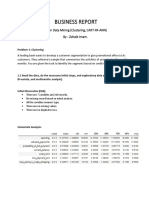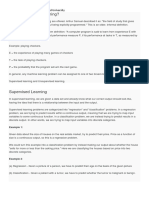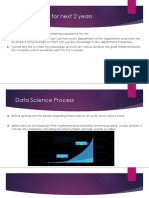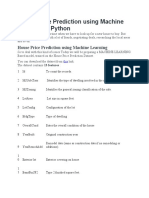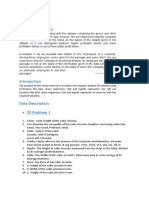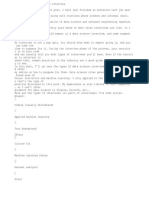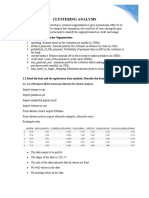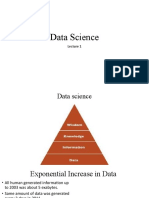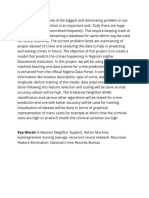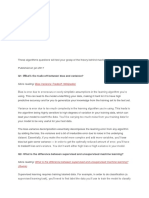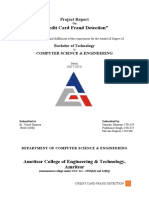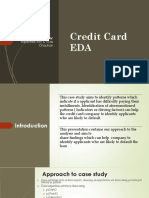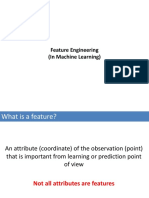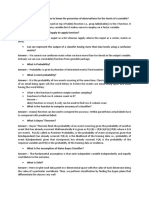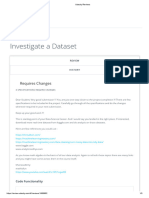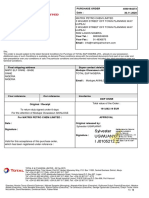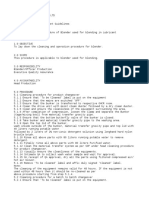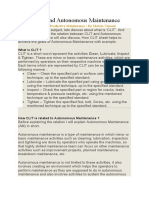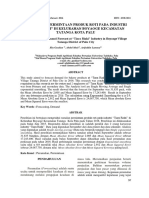0% found this document useful (0 votes)
520 views9 pagesDocumenting Data Science Projects
The document provides guidance on how to effectively document a data science project. It recommends including comments in code to explain major steps and rules for writing clear comments. Key areas that should be documented in a technical report include background, success metrics, data collection, tools used, data cleaning, feature selection, model training methods, model evaluation, output presentation, best performing model, model explainability, deployment, improvements, challenges faced, new research ideas, team members, and references. Documentation of a project in a technical report or Word/PDF format helps distinguish the work from others and makes it publishable or reproducible.
Uploaded by
yinka omojesuCopyright
© © All Rights Reserved
We take content rights seriously. If you suspect this is your content, claim it here.
Available Formats
Download as PDF, TXT or read online on Scribd
0% found this document useful (0 votes)
520 views9 pagesDocumenting Data Science Projects
The document provides guidance on how to effectively document a data science project. It recommends including comments in code to explain major steps and rules for writing clear comments. Key areas that should be documented in a technical report include background, success metrics, data collection, tools used, data cleaning, feature selection, model training methods, model evaluation, output presentation, best performing model, model explainability, deployment, improvements, challenges faced, new research ideas, team members, and references. Documentation of a project in a technical report or Word/PDF format helps distinguish the work from others and makes it publishable or reproducible.
Uploaded by
yinka omojesuCopyright
© © All Rights Reserved
We take content rights seriously. If you suspect this is your content, claim it here.
Available Formats
Download as PDF, TXT or read online on Scribd
/ 9
